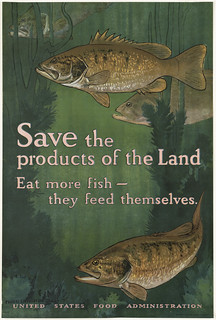Monday, April 14, 2014
Anthony Bourdain's A Cook's Tour Chapter 1-6
What is the perfect meal, Bourdain asks himself, and by extension his readers. We follow his highs and lows, and the crushing sense of disappointment with being forced to eat for an audience. His trip to Vietnam is filled with bright colors and strange tastes and wonderful people. There are times though, when Bourdain uses a flurry of French based lingo, so deep only an insider would understand the nuances. I, as a straight female reader, am also ejected from the story when he writes "Your first taste of champagne on a woman's lips...". Mentally, I'm going sure okay, wait what? That's not an experience we will share, much like his French background in cooking. Being a good reader requires empathy and the suspension of disbelief-although A Cook's Tour often challenges me. It reminds me in Stealing Buddha's Dinner, Bich refuses to go to church with the Van der Wals because she knows she will be the outsider. In this sense, there's a generation gap because Bourdian remembers the Vietnam War and has memories that to me are a part of history. Nevertheless, the exchange with Sonya is so real she leaps right off the pages in her rabbit fur jacket.
A farmer's market is a direct reflection of the farm land that surrounds it and the produce that's in season. Washington farmer's markets burst with apples and pumpkins in the fall, turnips and lettuce in the spring. Boxes and bushels trucked over the mountains from dusty farm land harvested by migrant Mexican workers. The Cascade Mountain range is a dividing line. The left is liberal, wet and city-like. The right is flat, more Republican, and probably wants to be a part of Idaho. Kalamazoo's farmers market, from the one I've been to, had more Mexican food and Mennonite bread and jellies. It was a small affair, but everything I bought I treasured. Good food speaks all languages, though not every country has refrigeration. This brings up the contrast of the necessity of farmer's markets versus the luxury of them.
We, as Americans can go shopping in grocery stores and enjoy the low prices of subsidized food. Others, like Russia, have daily markets filled with more meat, and more mean haggling. Food is part of a struggle for them, for both buyers and producers. The culture of borscht is grounded in the idea of lacking food, when winter is cold and only cabbage is cheap. In comparison, the food culture of the US is rather lacking. The slow food movement, with its pomp and circumstance, was the direct rebellion to Betty Crocker cake mixes. One generation wanted fast, and one wanted slow. What then, is the perfect meal? Is it a birthday cake from Costco? Is it a seven course meal at NYC restaurant? Whatever it is, we'll have to keep reading to find out.
Subscribe to:
Post Comments (Atom)

Colleen, this was a very interesting reflection that made me think a lot of Bourdain as an author. In regards to your first paragraph, I don't think anyone will make the argument that Bourdain is a very tactful man. However, I think he may be creating this persona intentionally in this text. He is often times self deprecating and his opinions are so over the top that I think this may be leading to some personal reflection later on in the book. Or at least, I hope it is. I guess we will have to wait and see!
ReplyDeleteGood question. What is the perfect meal, especially in regards to the slow food movement and the surge of young people pushing for food justice? While reading your reflection, I realized that, while Bourdain started out looking for a perfect meal (as in, which foods would make up the perfect meal?), as we go through the book he is revealing the many parts of a meal that make it good, bad, memorable, etc. He talks about history, as in Vietnam, of people and family, of preparation, of variety. I think as we continue to read, we will discover along with him that finding the perfect meal is more complicated that simply which foods make it up.
ReplyDeleteI like your point about the 'necessity of farmer's markets versus the luxury of them.' For most Americans, going to the farmer's market is a novelty - it is an exception to the football field side, fluorescent lighted norm. We don't need to eat fresh food. We have the convenience of all kinds of storage techniques. But what are we missing out on? Like the general trend Bourdain found through his travels - the best tasting food was closest to a farm and animals. Using the freshest ingredients possible is just the easiest was to make something delicious!
ReplyDeleteYou made very interesting comments about the differences between cultures, Colleen. I appreciate particularly your reflexion about the relativity of perception: the perfect meal will not be the same for everybody. Culture, generation, memories and tastes of course will play a role in our judgment. Even though Bourdain does not share all of these with the readers, he managed to give me a strong feeling of food and the different ways you can approach it.
ReplyDelete